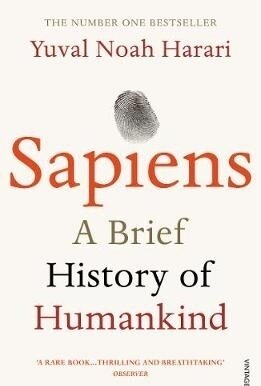Search

Shirley Temple: American Princess
Book
At the age of five, Shirley Temple became the world's most famous and acclaimed child-the most...
Hazel (1853 KP) rated The Diamond Courier in Books
Dec 10, 2020
Twenty years have passed since the end of Hannah Byron's World War One novel In Picardy's Fields. It is now 1939 and the Second World War is just beginning, but all seems peaceful in Kent, England where the narrator, Lili Hamilton, lives with her parents. War is the last thing on Lili's mind as she contemplates how to get out of an arranged marriage and pursue a career in journalism.
The surname Hamilton may be familiar to those who have read the previous book but Lady Madeleine has left her war achievements far behind in The Diamond Courier where she plays the role of a prim and proper lady of the house. Her daughter, Liliane, feels trapped by her sensible parents' expectations who thwart her plans to be a political journalist. Yet Lili, encouraged by the handsome leader of the British Communist Party Leo Oppenheim, perseveres, thus estranging herself from her family.
Lili soon learns living in London with Leo is not the life she desired, but feels it is too late to back out, especially after witnessing the treatment of Jews on the continent. The Jewish community need someone to bring their precious diamonds to safety before the Germans get their hands on them, and they believe Lili is the best person for the job. Unless, of course, she gets caught.
The Diamond Courier is much darker than Byron's previous book. Naturally, war is not a happy topic, but the sense of hope felt in In Picardy's Fields is missing in this novel. The story divides into two sections, "Leo" and "After Leo". The former is lengthier, drawn-out, and not always pleasant to read. The latter, on the other hand, is packed with danger, excitement and adventure.
For Lili, Communism is something new and exciting, which she desires to pursue. The party has clear views about the war, with which all members must agree. Yet, when faced with the horrors of war, Lili realises she must cast aside her political opinions. Whether Communist, Jew, sympathiser or resistance member, no one deserves the terrible treatment delivered by the Nazis.
Although this is a work of fiction, Byron remains faithful to the true nature of the Second World War. She does not gloss over any of the atrocities and, whilst the reader keeps their fingers and toes crossed that Lili will get her "happily ever after" ending, this cannot be possible for everyone in the novel.
Aiming to show the strength of women living in a "man's world", Byron has created female characters of whom to be proud and respect. Whilst the storyline may not always be pleasant, it is a gripping narrative that immerses the reader into Lili's life and experiences. Hannah Byron has a way with words that keeps the reader engaged throughout. She is an author to keep an eye on.
The surname Hamilton may be familiar to those who have read the previous book but Lady Madeleine has left her war achievements far behind in The Diamond Courier where she plays the role of a prim and proper lady of the house. Her daughter, Liliane, feels trapped by her sensible parents' expectations who thwart her plans to be a political journalist. Yet Lili, encouraged by the handsome leader of the British Communist Party Leo Oppenheim, perseveres, thus estranging herself from her family.
Lili soon learns living in London with Leo is not the life she desired, but feels it is too late to back out, especially after witnessing the treatment of Jews on the continent. The Jewish community need someone to bring their precious diamonds to safety before the Germans get their hands on them, and they believe Lili is the best person for the job. Unless, of course, she gets caught.
The Diamond Courier is much darker than Byron's previous book. Naturally, war is not a happy topic, but the sense of hope felt in In Picardy's Fields is missing in this novel. The story divides into two sections, "Leo" and "After Leo". The former is lengthier, drawn-out, and not always pleasant to read. The latter, on the other hand, is packed with danger, excitement and adventure.
For Lili, Communism is something new and exciting, which she desires to pursue. The party has clear views about the war, with which all members must agree. Yet, when faced with the horrors of war, Lili realises she must cast aside her political opinions. Whether Communist, Jew, sympathiser or resistance member, no one deserves the terrible treatment delivered by the Nazis.
Although this is a work of fiction, Byron remains faithful to the true nature of the Second World War. She does not gloss over any of the atrocities and, whilst the reader keeps their fingers and toes crossed that Lili will get her "happily ever after" ending, this cannot be possible for everyone in the novel.
Aiming to show the strength of women living in a "man's world", Byron has created female characters of whom to be proud and respect. Whilst the storyline may not always be pleasant, it is a gripping narrative that immerses the reader into Lili's life and experiences. Hannah Byron has a way with words that keeps the reader engaged throughout. She is an author to keep an eye on.
BookblogbyCari (345 KP) rated Sapiens: A Brief History of Humankind in Books
Aug 5, 2018
This book was chosen to be the first book read and discussed in an online non-fiction book club I recently joined – and I’m glad we did choose this one!
The book is an overview of homo-sapiens as a species, and how we have changed over the ages, and what we have done, before finally touching on where we are going. As such the book is a cross-pollination of history, sociology, and economics.
As you may expect from a book with such a broad scope, there are some sweeping statements, and rather than being a neutral dispassionate account, Harari makes his opinions very evident. However rather than being irritating, I feel this makes for a more entertaining read.
The book begins by introducing the theme of homo-sapiens in the context of the presence of the other human species that used to exist. He then goes on to describe the cognitive and agricultural revolutions. Then it’s the establishment of patriarchal social hierarchies across the world, largely based on historical conventions. Next Harari states that the purpose of religion is to unify fragile societies with superhuman legitimacy.
Harari then moves on to the scientific revolution, describing how an admission of ignorance by Europeans, along with a desire to discover and conquer new lands was key to the movement.
The conversation moves swiftly then to economics, using the fact that a bank can loan £10 for every £1 it has, to argue that our economics is based on trust in the future. Harari states that a country’s credit rating is more important than its actual resources. Harari describes capitalism and consumerism as being 2 sides of the same coin with two commandments: rich must invest, rest of us must buy. Consumerism, he says, aims to convince people that indulgence is good and frugality is self-oppression.
Harari also argues that, now, instead of relying on local communities the individual relies on the market or the state. Parental authority no longer sacred, he says, and state intervenes. And so when Harari asks if we are any happier now than when we were hunter-gatherers, he argues that our rise of wealth is offset by the disintegration of community life.
Harari also speaks of ecological degradation and our tendency to treat other species as a means to an end, for example, the farming of cow's and chickens has cut years off the lives of both, since they are killed as soon as they reach their maximum weight.
In the final chapter, Harari speculates on the future of mankind. With improvements in medical knowledge comes new ethical conundrums, he says. How will we handle the options of genetic engineering? What will the advent of artificial intelligence mean for humanity?
In my book club, we found that the book generated a lot of talking points. What would the world be like now, had the other species of humans survived? Why have so many cultures across history and the world had patriarchal hierarchies? Can societies improve over time, or is one style better than another? Can communism be considered a religion? Are human rights really just a figment of our collective imagination?
Whilst not everyone in my book club enjoyed the book equally, I would say that it’s as enlightening as it is thought provoking. By the end, it was hard to argue with the author's conclusion that homo-sapiens are like dissatisfied and irresponsible gods.
The book is an overview of homo-sapiens as a species, and how we have changed over the ages, and what we have done, before finally touching on where we are going. As such the book is a cross-pollination of history, sociology, and economics.
As you may expect from a book with such a broad scope, there are some sweeping statements, and rather than being a neutral dispassionate account, Harari makes his opinions very evident. However rather than being irritating, I feel this makes for a more entertaining read.
The book begins by introducing the theme of homo-sapiens in the context of the presence of the other human species that used to exist. He then goes on to describe the cognitive and agricultural revolutions. Then it’s the establishment of patriarchal social hierarchies across the world, largely based on historical conventions. Next Harari states that the purpose of religion is to unify fragile societies with superhuman legitimacy.
Harari then moves on to the scientific revolution, describing how an admission of ignorance by Europeans, along with a desire to discover and conquer new lands was key to the movement.
The conversation moves swiftly then to economics, using the fact that a bank can loan £10 for every £1 it has, to argue that our economics is based on trust in the future. Harari states that a country’s credit rating is more important than its actual resources. Harari describes capitalism and consumerism as being 2 sides of the same coin with two commandments: rich must invest, rest of us must buy. Consumerism, he says, aims to convince people that indulgence is good and frugality is self-oppression.
Harari also argues that, now, instead of relying on local communities the individual relies on the market or the state. Parental authority no longer sacred, he says, and state intervenes. And so when Harari asks if we are any happier now than when we were hunter-gatherers, he argues that our rise of wealth is offset by the disintegration of community life.
Harari also speaks of ecological degradation and our tendency to treat other species as a means to an end, for example, the farming of cow's and chickens has cut years off the lives of both, since they are killed as soon as they reach their maximum weight.
In the final chapter, Harari speculates on the future of mankind. With improvements in medical knowledge comes new ethical conundrums, he says. How will we handle the options of genetic engineering? What will the advent of artificial intelligence mean for humanity?
In my book club, we found that the book generated a lot of talking points. What would the world be like now, had the other species of humans survived? Why have so many cultures across history and the world had patriarchal hierarchies? Can societies improve over time, or is one style better than another? Can communism be considered a religion? Are human rights really just a figment of our collective imagination?
Whilst not everyone in my book club enjoyed the book equally, I would say that it’s as enlightening as it is thought provoking. By the end, it was hard to argue with the author's conclusion that homo-sapiens are like dissatisfied and irresponsible gods.

